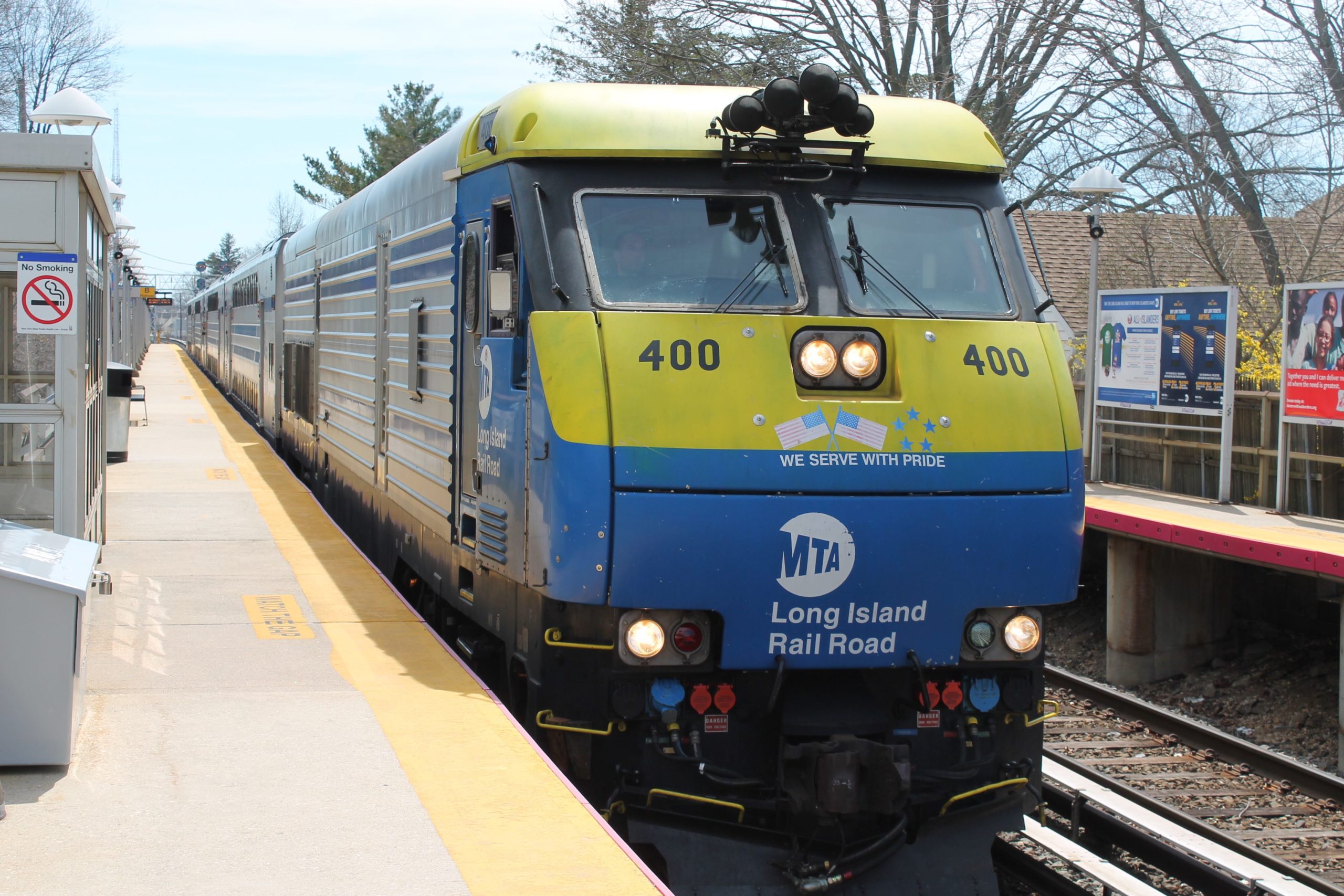The two village mayors who have been most critical of the Long Island Rail Road’s third track project now say they’re on board.
The villages of Floral Park and New Hyde Park have finalized memoranda of understanding with planners of the $2 billion project outlining how planners will assuage potential harm to their communities during construction, the mayors said last Friday.
The agreements are the product of weeks of negotiations with project officials, the mayors said. Floral Park’s memorandum “gives us a seat at the table and a tangible and measurable input before and during construction,” Floral Park Mayor Dominick Longobardi said in a statement given to project officials.
“If we do this right, if we build it out right, [while] it may be very upsetting during the construction period, it could ultimately be an improvement to … New Hyde Park,” Lawrence Montreuil, the New Hyde Park mayor, said in an interview.
Officials and residents in the two villages had remained vocal critics of the LIRR’s plan to build a third track along a key stretch of its Main Line between Floral Park and Hicksville.
Longobardi told residents in a newsletter on Saturday that village officials “would like nothing more than this project to be eliminated,” they felt the memorandum will protect the community if it gets built.
The mayors’ support came on the day the MTA’s executive director, Ronnie Hakim, said the authority withdrew and resubmitted to the state’s Capital Program Review Board an amendment to its 2015-2019 Capital Program that would provide $1.95 billion to fund the project.
Last Friday was the deadline for to one of the board’s four members to veto the amendment before it became part of the MTA’s capital plan.
The move gives the MTA 30 more days to convince the state Senate of the project’s importance, Hakim said. State Sen. Martin Golden (R-Brooklyn) is reportedly the only Capital Program Review Board member likely to veto the amendment.
“This action will give the Senate an additional 30 days to review the project and we are confident that any remaining questions will be answered in this time,” Hakim said in a statement Friday.
Golden’s vote reportedly depends on the opinion of Senate Majority Leader John Flanagan (R-East Northport). Two Republican state senators from Nassau County, Elaine Phillips and Kemp Hannon, have opposed the project.
Golden’s and Flanagan’s offices did not return requests for comment. But Flanagan told Newsday in a statement that he looked forward to reviewing the amendment.
“Given the derailments and service disruptions that have jeopardized rider safety and paralyzed the region’s mobility, the withdrawal of this proposed amendment will provide the MTA and its chairman, Joe Lhota, with the opportunity to develop a comprehensive solution to the ongoing commuter crisis,” Flanagan told Newsday.
Efforts to make the project less intrusive won over other communities that had opposed a similar plan a decade ago, such as Mineola. It will also eliminate seven street-level railroad crossings along the corridor, add parking spaces, build noise reduction walls and upgrade several LIRR stations.
Project planners negotiated memoranda of understanding with the nine affected municipalities over the past several weeks to address concerns mostly relating to the three- to four-year construction period.
Those agreements provide a $20 million fund to compensate municipalities for economic losses, a “communication plan” that ensures accountability during construction, payments to the villages if construction is delayed, and a process to reimburse residents for any damage to their homes, local officials have said.
“What we’ve been able to do is through a lot of dialogue and negotiation with the governor’s office is put in place the best situation we can have, if the project goes through,” Montreuil said.
New Hyde Park and Floral Park retained a law firm and engineering firm to review the LIRR’s final environmental study for the project and possibly sue if they found it faulty.
Montreuil said such a lawsuit is highly unlikely now that his village’s concerns have been addressed.
Supporters of the third track say it will improve LIRR service by giving trains a route around obstacles that currently cause widespread delays. It has also been touted as a boon to Long Island’s economy.
But residents at a public meeting in New Hyde Park last week continued to vociferously oppose it, saying the state’s negotiating efforts were just attempts to buy off the village officials.
Nadia Holubnyczyj-Ortiz, president of Floral Park’s Hillcrest Civic Association, said she hopes the LIRR lives up to its agreements with the villages.
The memorandum “has no legal weight. None,” she said. “It’s a gentlemen’s handshake.”



